Celerity
Celerity's JournalCool Down With Hiyashi-Chuka, aka Chilled Ramen Noodles
Ramen Shack’s Keizo Shimamoto shares his recipe for the cold noodle dish.https://www.thrillist.com/eat/nation/hiyashi-chuka-recipe-chilled-ramen-noodles
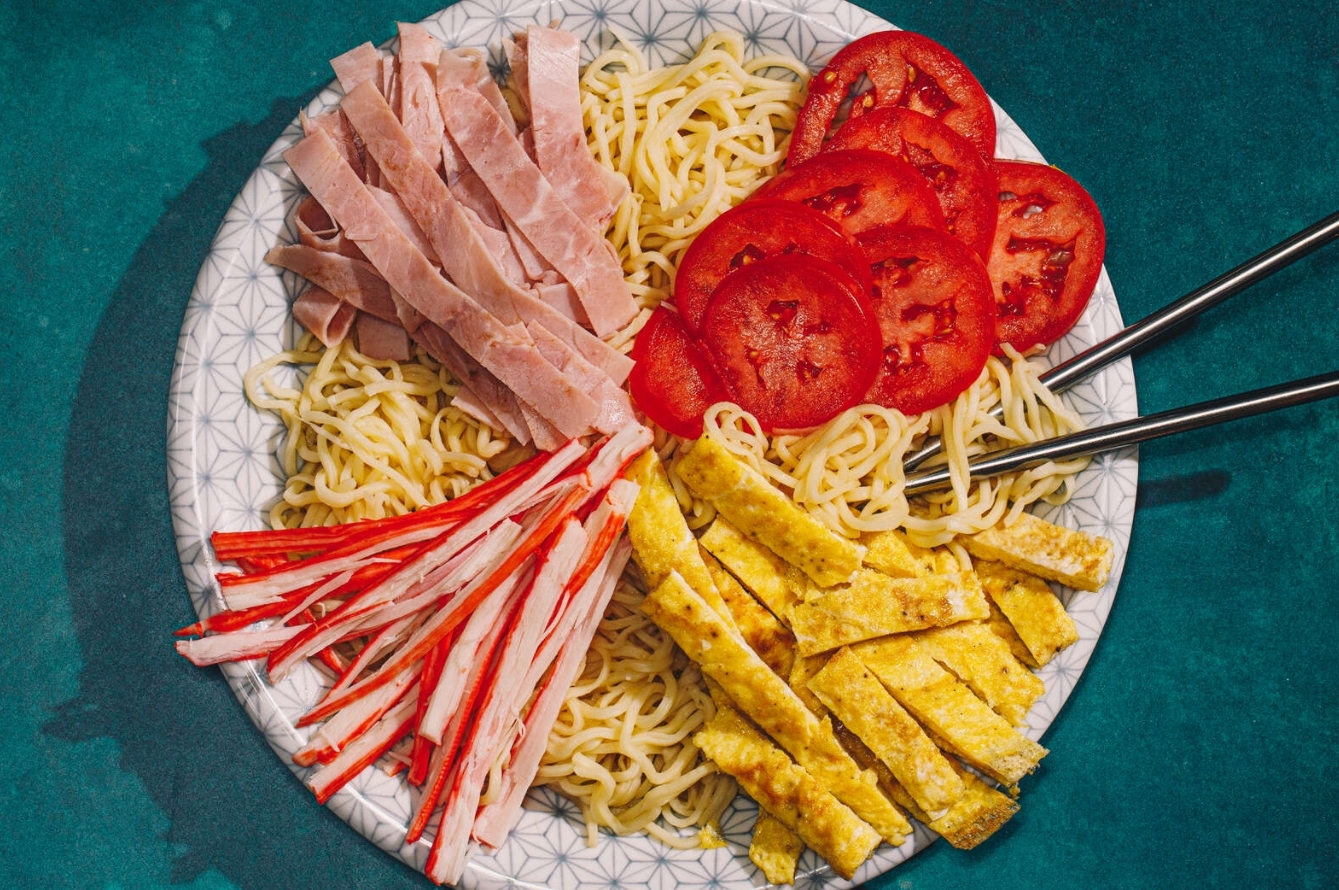
Keizo Shimamoto marks the seasons with noodles. For the ramen chef behind New York’s now-mythical Ramen Shack and the ramen burger, a sure sign that summer has arrived is not just the heat or humidity, but the sudden presence of hiyashi chuka. This Japanese-Chinese cold noodle dish is served with a variety of toppings, from shredded egg crepe to tomato wedges, and doused in a vinegary, sweet shoyu dressing sauce. “In the summertime, my mom always made it,” he says. “That is kind of the thing. When summer rolls around, a lot of old-school ramen shops in Japan start serving hiyashi chuka.” A second-generation Japanese-American, Shimamoto grew up eating Tokyo-style shoyu ramen on countless family trips to Japan. After losing his job during the 2008 recession, he started a ramen blog, Go Ramen!, where he documented his lunch excursions to ramen shops across southern California.
In 2009, he left on a month-long ramen pilgrimage to Japan, eating 55 bowls in 21 cities over 28 days, from the northernmost Hokkaido prefecture to the southernmost Kyushu prefecture. His trip, he says, was akin to a religious experience. So much so that the following fall, Shimamoto quit his job and moved to Tokyo to study ramen. “I felt like I had a calling,” he remembers. “After losing everything in the subprime mortgage crisis, I just decided to go for it. It was really on a whim—I had no culinary training, but I felt like I had to take the jump. I ended up spending four years in Tokyo studying at different ramen shops.” In 2013, Shimamoto made his way to New York City, where he garnered viral fame after serving his now-famous ramen burger at Brooklyn’s Smorgasburg food market. Things only escalated from there: he leveraged his newfound ramen burger fame to open Ramen Shack in New York in 2015, which developed a cult following among ramen heads across the country for its diverse and ever-changing menu.
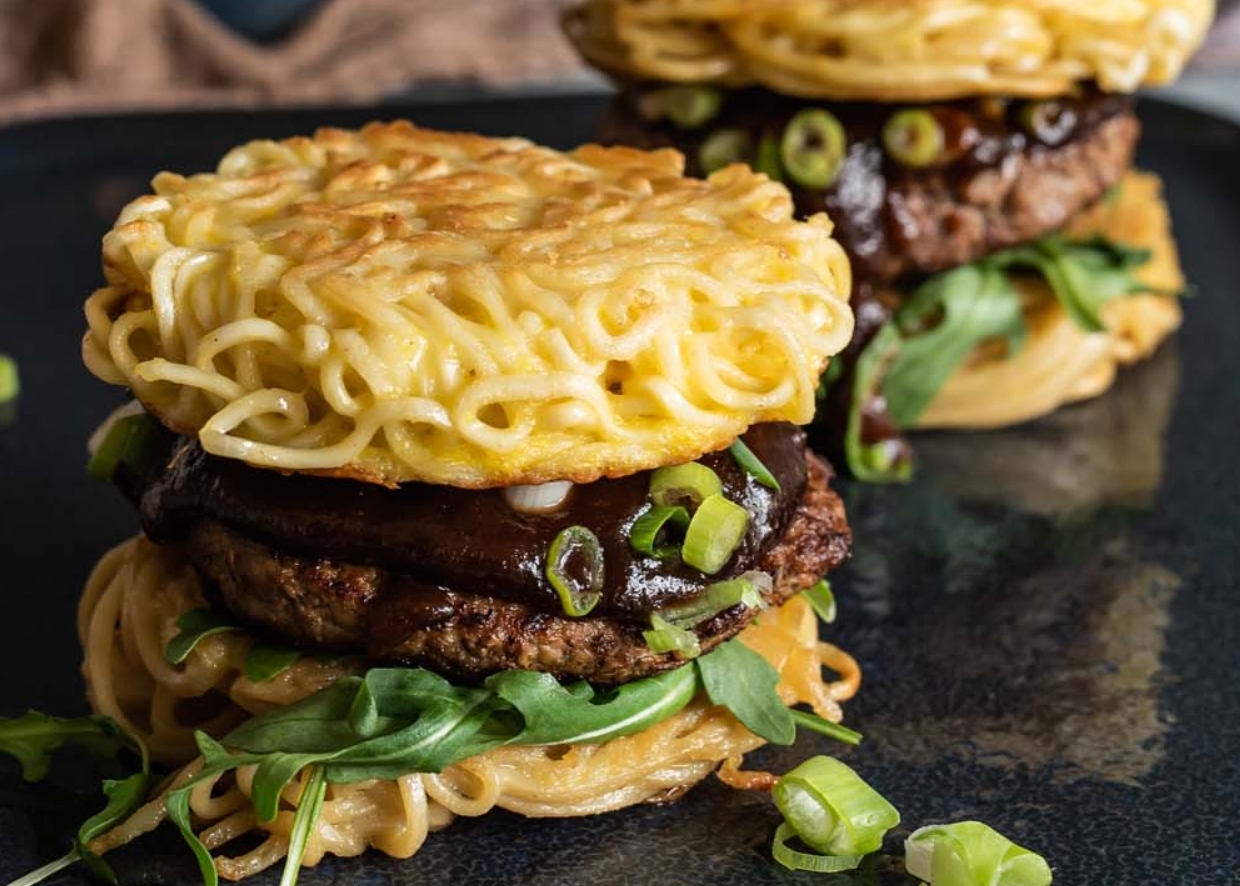

Shimamoto had to close the restaurant in 2019 after a rent increase, but he has fond memories of the shop, which he says was a distillation of his obsession with ramen and Japanese-style Chinese cooking, also known as chuka ryouri. “At one point, I had 35 different ramen bowls on the menu,” he laughs. “I tend to go crazy. I just can’t stick to one style. I’m a ramen geek first.” This month, Shimamoto is opening a new Ramen Shack location in San Juan Capistrano, California, which he says will have the same ethos as his former location in New York. He wants his customers to experience the chuka ryouri that he grew up with. “My heart is with that chuka-style, Japanese-Chinese food,” he says. “I’ll keep the menu simple at first, but it might get crazy. I’ve never had a ramen shop this large, so it’s going to be really great to do a full-blown ramen shop.” One guaranteed dish on the menu? Hiyashi chuka. Shimamoto walked me through his recipe for a basic shoyu-style hiyashi chuka, which he makes from scratch, from the noodles to the sauce. According to Shimamoto, hiyashi chuka—which literally translates to “chilled Chinese”—is another staple of old-school chuka restaurants in Japan. “Because it’s a summer dish, it has to have that element of sweet and sour to refresh your body,” he says. “The recipe is kind of arbitrary, so if it’s too sweet or sour to you, you can adjust it to taste.”
How to make hiyashi chuka
Hiyashi chuka, as its name suggests, is a dish best served cold—that not only includes the noodles, sauce, and toppings, but the plate or bowl you’re serving it in as well. “A lot of restaurants chill their bowls in the fridge, so you’ll want to take time to chill everything in the fridge before eating,” he says. Shimamoto also recommends overcooking the noodles “a little bit” and shocking them in ice-cold water for a few seconds to make them nice and chewy. For the most part, hiyashi chuka is a straightforward, low-effort dish: put your ice-water shocked noodles in a chilled bowl, top it with sliced vegetables and shredded egg, and douse everything with prepped, chilled sauce. “Kind of like a salad,” says Shimamoto. If you can’t find shoyu tare—the concentrated soup base for shoyu ramen—I used a wonton soup mix as a substitute and it worked out fine. If you want to try a sesame-style sauce on your hiyashi chuka, Shimamoto recommended mixing in store-bought goma dare with Shimamoto’s base sauce to taste. And, of course, at the end, you can top it with green onions and toasted white sesame seeds as a last touch.
Ramen Shack’s Hiyashi Chuka Recipe..................
snip
Live For The Orange Man, Die Alone On A Ventilator For The Orange Man
The sad, confused, and unnecessary death of Republican leader Pressley Stutts.https://thebanter.substack.com/p/live-for-the-orange-man-die-alone

South Carolina county Republican party leader Pressley Stutts died aged 64 of Covid-19 on August 19th. He passed away alone, in hospital while hooked up to a ventilator unable to breathe. Weeks before, he had mocked the Coronavirus — specifically the Delta variant that he believed wasn’t a threat:

Stutts was almost certainly infected with the Delta variant currently ripping through South Carolina and “feeding on the unvaccinated”. He died because of it. Sadly, Stutts was part of a concerted effort to stop vaccination in his county and had urged his followers to protest a visit from Vice President Kamala Harris back in April of this year. “Kamala is coming to Greenville, SC Monday around 12 noon (all roads lead to Greenville to push her "Get Vaccinated" agenda), he wrote on Facebook. “We will be offering her a good ol' "Southern Welcome" where we will push back against this ungodly initiative. Many signs will be sending her a clear message that We, the People are NOT in favour of hers and Biden's radical leftist agenda.” “We will also be waving American flags because June 14th is Flag Day,” continued Stutts. “Kamala hates the American flag and what it stands for. Also, June 14th is President Trump's birthday and we will be waving flags and signs that say "Trump won" (which he did), "Trump is still my President" and "Happy Birthday, Mr. President." Patriotism is alive and well in Greenville SC.”
Stupid, but not necessarily bad
While it is understandable to not be particularly empathetic towards those who refuse to get the vaccine, it is difficult not to feel some degree of sympathy for Stutts. The Greenville county GOP leader’s musings on Facebook now circulating online reveal much about him and the lives of thousands of Trump supporters dying because they refuse to get vaccinated. While clearly not a bright man, Stutts’s posts also indicate he wasn’t bad man. He had many devoted friends and often posted memes like this:

Stutts’s social media posts mostly reveal an almost childlike simplicity — an uncompromising devotion to Donald Trump, a belief that Covid wasn’t real, that vaccinations still weren’t necessary, and that he was engaged in a holy war against liberals in America. Stutts appeared to believe that his religious faith would be more than enough to cure Covid, and continuously asked his followers to pray for him. “Serious talk about having to go on the ventilator,” Stutts posted on August 5th. “Don't want to, but all avenues are going to be considered. If I do, I'll just be relaxing letting God heal my body. Critical time for fervent prayers, please!” A post from his account on August 11th was perhaps his most vulnerable, and most revealing:
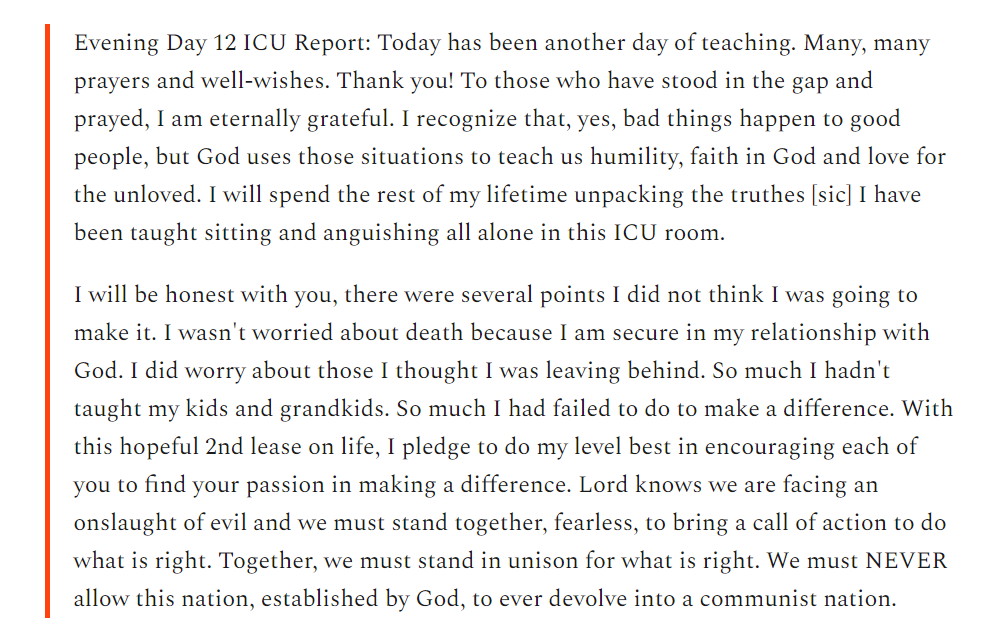
Everything up until the last sentence is befitting of a man about to meet his end. Stutts wonders whether he has lived a good enough life, whether he passed enough wisdom onto this children and grandchildren, and speaks about loving the “unloved”. He shows remorse for failing to make enough of a difference, asks his followers to follow their passions and do good in the world. He even professes hope that he will survive the ordeal so he can live to correct his mistakes. But at the end, even the ravages of Covid were not powerful enough to undo the years of propaganda, deceit and lies told to him by his Orange God.
A misguided life.....
snip
Photos of the Week
https://www.theatlantic.com/photo/2021/08/photos-of-the-week-taliban-takeover-park-gladiator-cave-robot/619837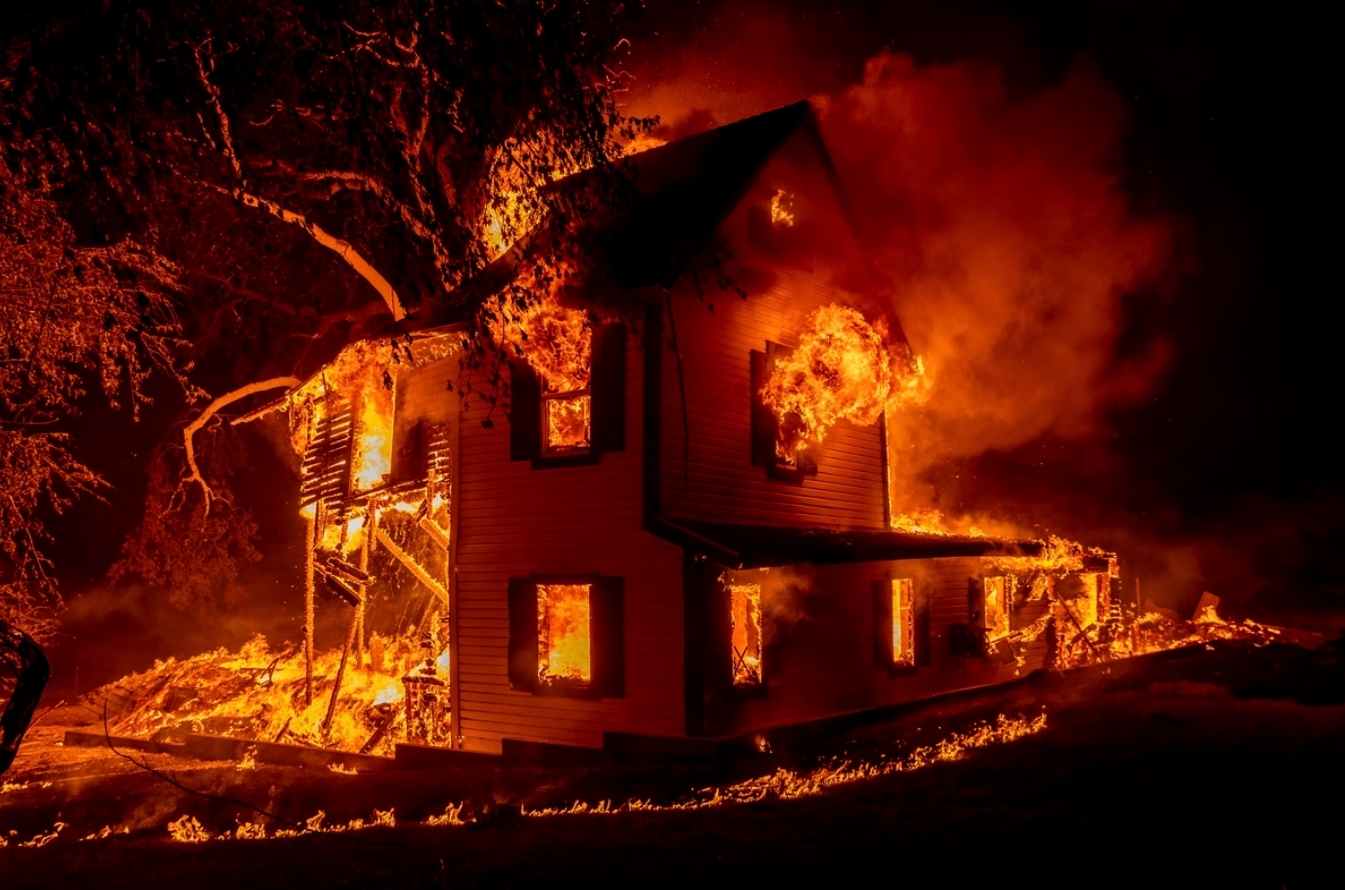
A home burns on Jeters Road as the Dixie Fire jumps Highway 395 south of Janesville, California, on August 16, 2021

A view of Sumela Monastery, built in the 14th century, in Turkey's Trabzon province, on August 15, 2021

A woman takes a picture of a sculpture depicting Puck from Shakespeare's comedy "A Midsummer Night's Dream," during a flower festival in Pakruojis, Lithuania, on August 14, 2021

Participants march during the Bucharest Pride parade on August 14, 2021, in Bucharest, Romania. Thousands attended the annual event, which has been celebrated since 2005, but was suspended in 2020 because of the COVID-19 pandemic
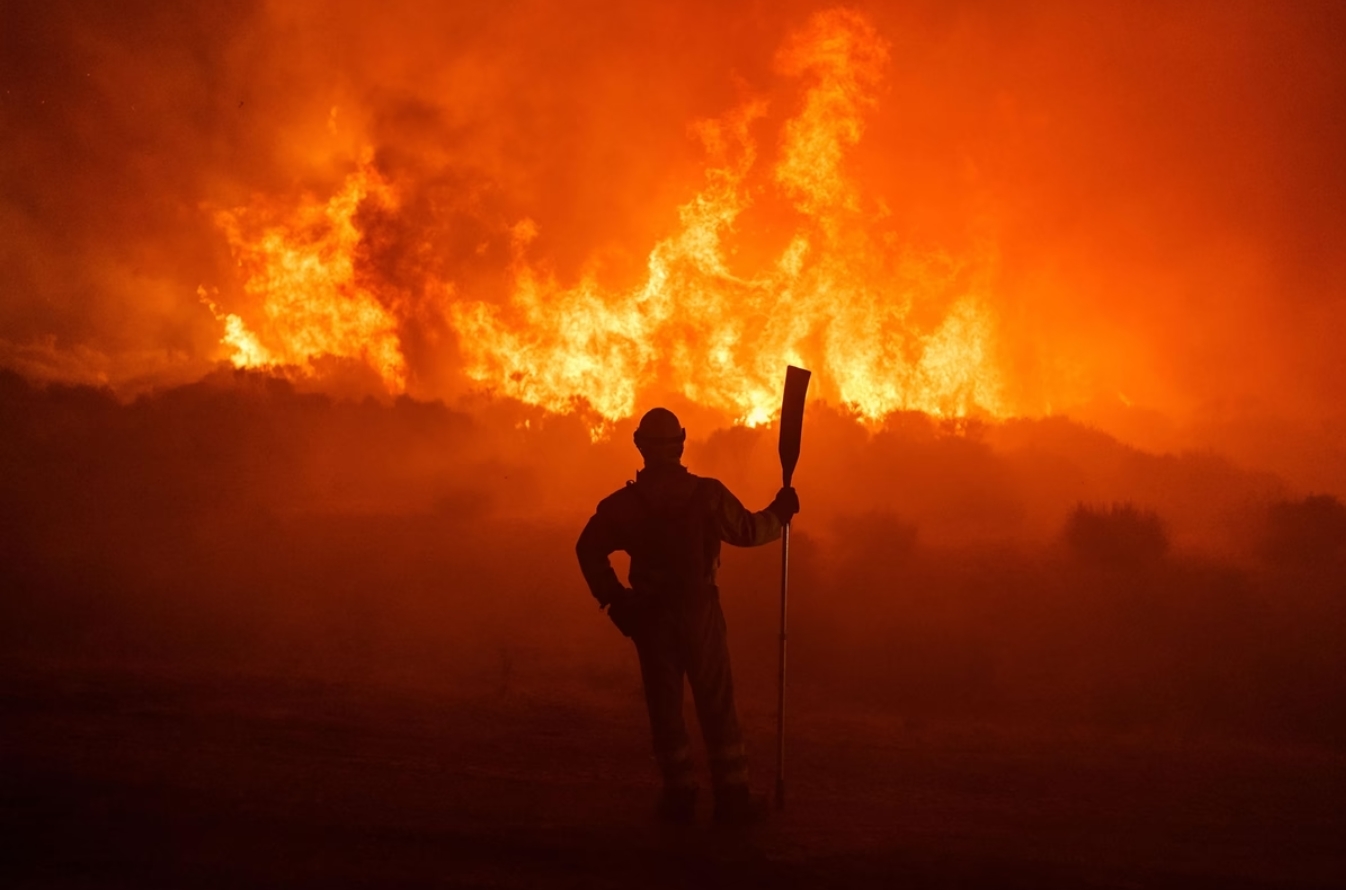
Firefighters operate at the site of a wildfire between Navalacruz and Riofrio, near Avila, Spain, on August 16, 2021

Antelopes are seen in the Maasai Mara National Reserve in Narok County, Kenya

Extinction Rebellion activists walk past the Brandenburg Gate as they take part in a protest to demand action against climate change, in Berlin, Germany, on August 16, 2021

A Taliban fighter walks past a beauty salon where images of women have been defaced with spray paint in Shar-e-Naw, in Kabul, on August 18, 2021

Houseboats sit in a channel at Lake Oroville State Recreation Area in Butte County, California, on August 14, 2021. At the time of this photo, the reservoir was at 24 percent capacity and 34 percent of its historical average

A train sits embedded in mud and debris after flooding in Wald im Pinzgau, near Salzburg, Austria, on August 17, 2021. Storms battered large parts of Austria, causing landslides and flooding

A member of Gladiators NYC, dressed in medieval armour, lies down after fighting in Central Park on August 14, 2021, in New York City. Once a month, Gladiators NYC meets in Central Park for a full-contact-combat tournament
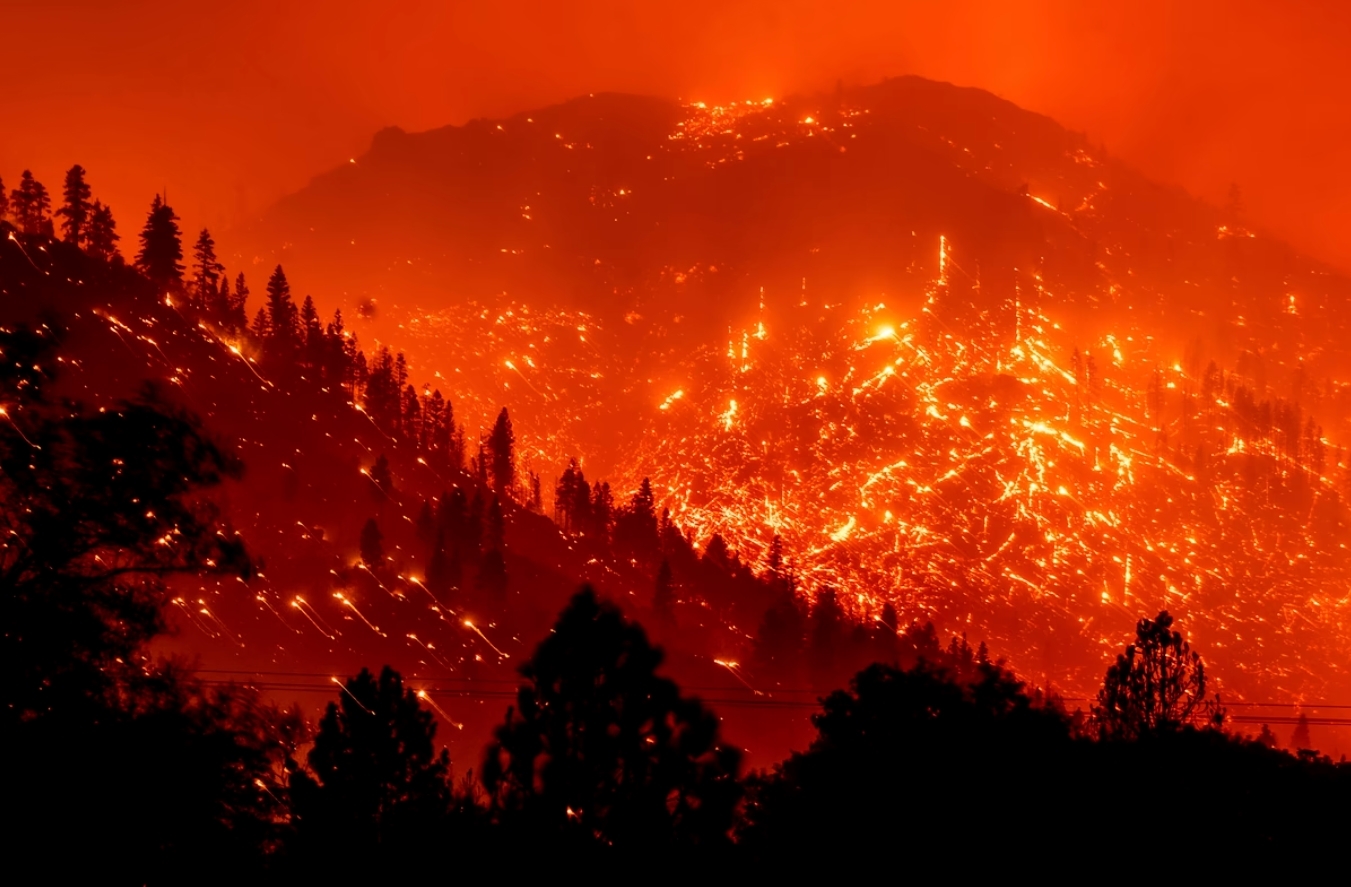
Seen in a long-exposure photograph, embers light up hillsides as the Dixie Fire burns near Milford, in Lassen County, California, on August 17, 2021
snip
much more at the link
Beyond Afghanistan
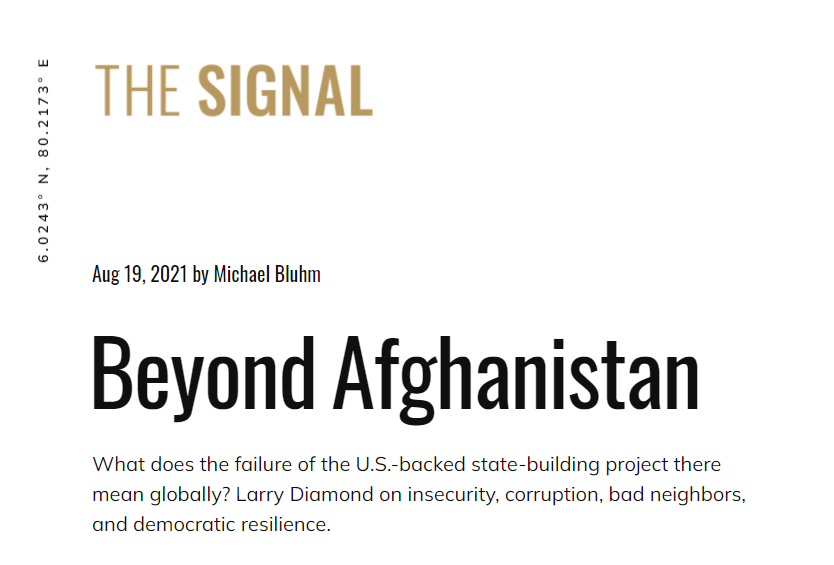
https://www.thesgnl.com/2021/08/afghanistan-democracy-larry-diamond/
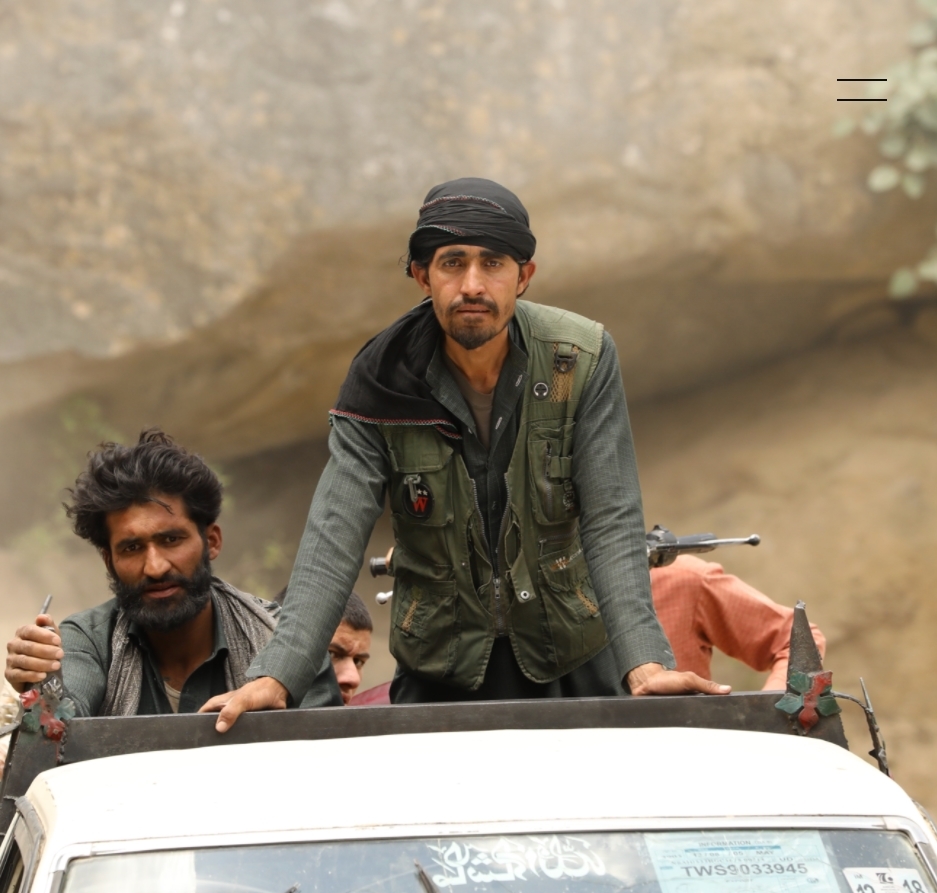
With the Taliban back in power, the United States and the international community are forced to confront Afghanistan’s failure to develop into a stable, functioning, democratic state. Despite more than $2 trillion invested in nearly 20 years of state-building, and after the deaths of more than 110,000 Afghans and 2,400 U.S. troops, the Afghan government never established authority over the country’s full territory—or was able to provide effective or reliable public services to areas it did rule. And despite nearly two decades of training, Afghanistan’s military more or less disintegrated before the Taliban, surrendering control of the country in a matter of weeks. Why couldn’t democracy take root?
Larry Diamond, a senior fellow at Stanford University’s Freeman Spogli Institute for International Studies, has written seven books on democracy and edited more than 40 on democratic development globally. In 2004, Diamond served as a senior adviser on governance to the Coalition Provisional Authority in Baghdad. In his view, the United States invaded Afghanistan and Iraq primarily for security reasons, not to turn them into democracies. The two countries were, he adds, exceptionally difficult cases for democratic state-building—on account of their histories; powerful, meddling neighbors; and identity clashes among the populations. Neither state, post-conflict, could provide physical security to its citizens, and both suffered from endemic corruption. As Diamond sees it, the collapse in Afghanistan comes at a time when democracy is in retreat worldwide: China and Russia seek to undermine democratic regimes and support authoritarians, while many states face rising income inequality and a weakening rule of law, while the West has cut back on democracy promotion. Afghanistan may have fallen under Taliban rule again, but, Diamond says, the world’s democracies need to strengthen their commitment to confronting China and Russia, and to defending democratic norms and values globally.
Michael Bluhm: What prevented Afghanistan and Iraq from becoming free, functioning, stable democracies?
Larry Diamond: It was never realistic to expect that they would become free, functioning, and stable democracies within a decade or even two. The goal in each case was not democracy promotion—it was security-related. In the case of Afghanistan, we had to intervene militarily to displace al-Qaeda. I believe that was the right decision, from an American national-security standpoint. We could all ask ourselves, would it have been better if we had just appointed a warlord and left, or would it have been better if we had done all the things that we tried to do to educate girls, promote civil society, the rule of law, and liberal values and ideas? There are multiple reasons why the Afghan government is falling. This was the predictable consequence of America announcing that it was completely pulling out militarily. You can argue—as the Biden administration does—that after 20 years, it was enough already. Or you could argue—as I was inclined to—that the modest commitment of troops was worth the price of keeping the Taliban from ruling the country and acting as a steel spine to strengthen the Afghan security forces and the Afghan state—and to strengthen the psychology of expectations that the Afghan project, however democratic it was or failed to be, could survive.
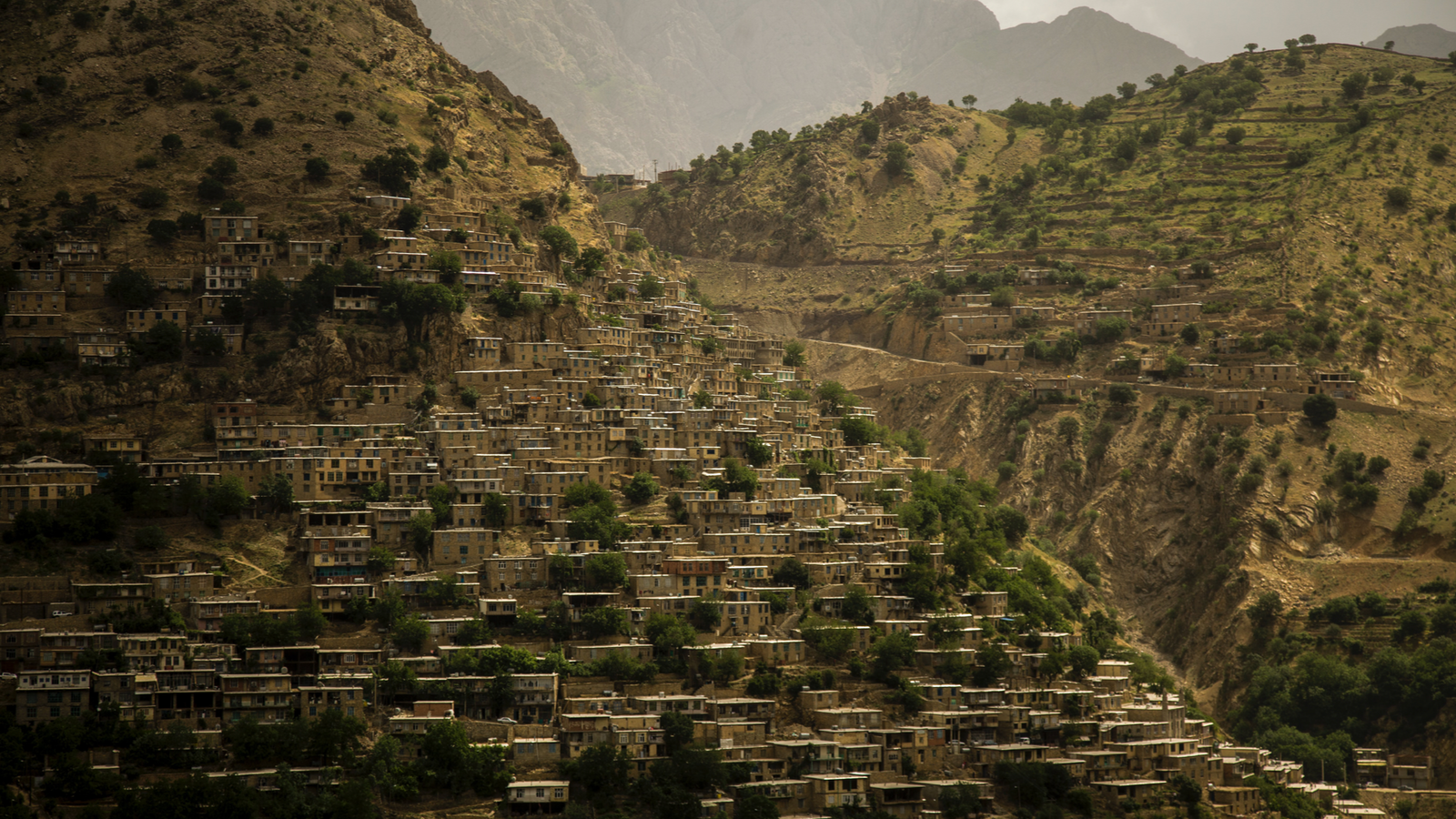
If corruption could have been reduced—and one could say that was impossible—it might have been possible to create a more viable state. It has been so difficult to fight the Taliban because Afghan military commanders have been stealing the salaries of their soldiers. If we could have set up a mobile banking and payment system—a lot of lower-income countries in Africa are starting to develop these systems—and deposited soldiers’ salaries directly into mobile bank accounts, that alone might have strengthened the Afghan state’s ability to defend itself, by taking away one of the major reasons why soldiers have been defecting, and by taking away one of the major incentives for worthless, corrupt people to become military commanders. It is a mistake to measure democracy promotion against the hardest cases of post-conflict state reconstruction and stabilization. It was not realistic to expect that either country would become a democracy. If they became viable states with some degree of political pluralism and respect for the rights of women and minorities, that would be an achievement over what existed in Iraq before the invasion and what existed in Afghanistan before the American intervention.
snip

excellent longform article, much more at the top link
totally off the wall question, but on my main MSNBC stream, it is wall to wall adverts for Spectrum
Mobile for MONTHS. The stream uses a Buffalo, NY based source. They also bomb the channel with adverts for an ambulance chaser slip and fall attorney (William Mattar, and those adverts are quite amusing at times).
I have never seen such saturation for any brand for anything like these Spectrum Mobile spots, anywhere, in the EU or the USA. It is just jaw-dropping, in terms of number of adverts and the period that this has been going on.
It seems like there are 10 to 20 per day, for months, and they also usually go after a competitor (T-Mobile) relentlessly with negative attacks.
Is this just a Buffalo thing, or thus this national?
Spectrum's parent company, Charter Communications, has been on a large overall climb since January 2019 or so (othern than a blip in the early COVID 2020 spring trough)
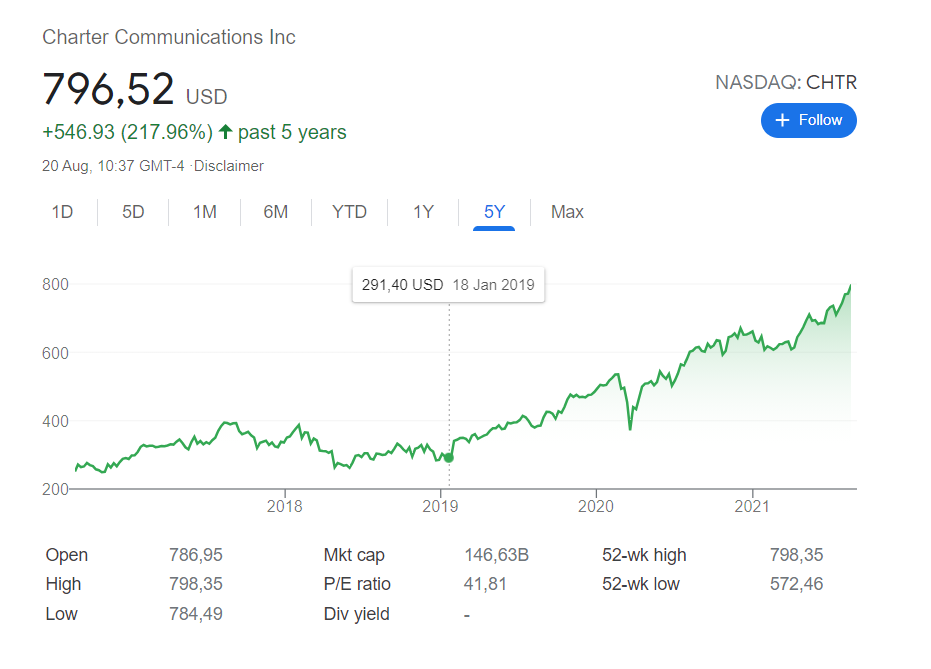
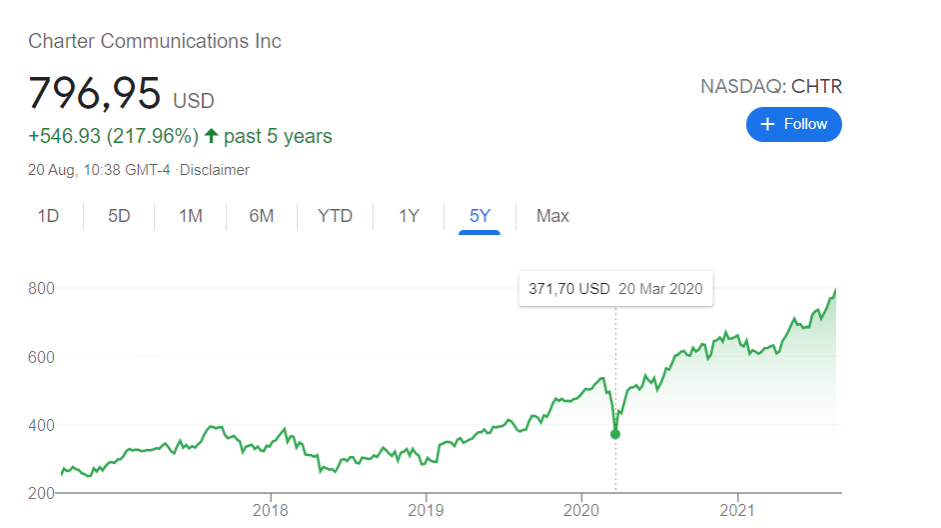
What an utter joke that the nation that invented the internet, and will have spent
over $100 TRILLION on just the regular federal budget (that's is not even counting off budget items, etc) in just my lifetime (1996 onward) by the time the next POTUS election rolls around cannot even make a state of the art vaccinated database, let alone upgrade it's scandalously shit computers system for ALL of the federal government. It still uses shite from the 1950's and 60's in multiple areas ffs.
It is a fucking national disgrace. It really is a joke. We built one from scratch in Sweden in a few months for what would still be chump change for the US even if it was designed the US population versus the Swedish one. It also is hooked into the pan EU system, and the EU has far more people (around 115 million more even after the UK fucked off) than the US. There will be a complete pan European system, and now we are talking about three quarters of a billion people.
I watched on in horror at the COVID payments serial cock-ups. The US government's technological infrastructure is on par with a third tier European nation. It is more Slovenia than Silicon Valley. Even its nuclear launch system is a dinosaur. It still uses 1950s-era assembly language code in some areas, and up until 20 months ago, 8 inch floppy discs from the 60/70's era.
I am just gobsmacked that this is tolerated.
Tennis Star Naomi Osaka Pledges Winnings to Haitian Earthquake Relief
https://www.motherjones.com/recharge/2021/08/tennis-star-naomi-osaka-pledges-winnings-to-haitian-earthquake-relief/
Naomi Osaka, the 23-year-old four-time Grand Slam champion, is pledging whatever winnings she hauls from the Western & Southern Open to earthquake relief in Haiti, where her father is from. If she takes the title, she’ll donate more than $250,000. It’s nowhere near sufficient for the scope and scale of need, but she hopes the pledge will mobilize more sustainable steps.
The death toll from the earthquake has risen to nearly 2,000, making it the deadliest in a decade. Half a million children are left with limited or no access to drinking water, food, or shelter. Hospitals are at capacity. Rescue workers are hampered by heavy rains. And the fall of Afghanistan to the Taliban is dominating major US media attention. But aid efforts are advancing in Haiti.
Her pledge shines a light on two axioms of action: Donations can work, but only because political systems don’t. The imperatives and half-life of media focus aren’t keeping pace with need. It’s a point best made by our Mother Jones colleague Nathalie Baptiste, who wrote just weeks ago, after the assassination of Haiti’s president, that crisis is too often the engine of attention: “My mother wishes she could spend more time talking about Haiti when there isn’t a crisis,” she wrote in an essay that casts a long light on the political, historical, and cultural dynamics of Haiti. “Only when there’s a disaster, that’s when people want to know about Haiti,” her mother tells her. “The questions always sound the same too. Why is there constant turmoil? Why are institutions continually failing the people? Who will decide Haiti’s future?”
The Coronavirus Is Here Forever. This Is How We Live With It.
We can’t avoid the virus for the rest of our lives, but we can minimize its impact.https://www.theatlantic.com/science/archive/2021/08/how-we-live-coronavirus-forever/619783/
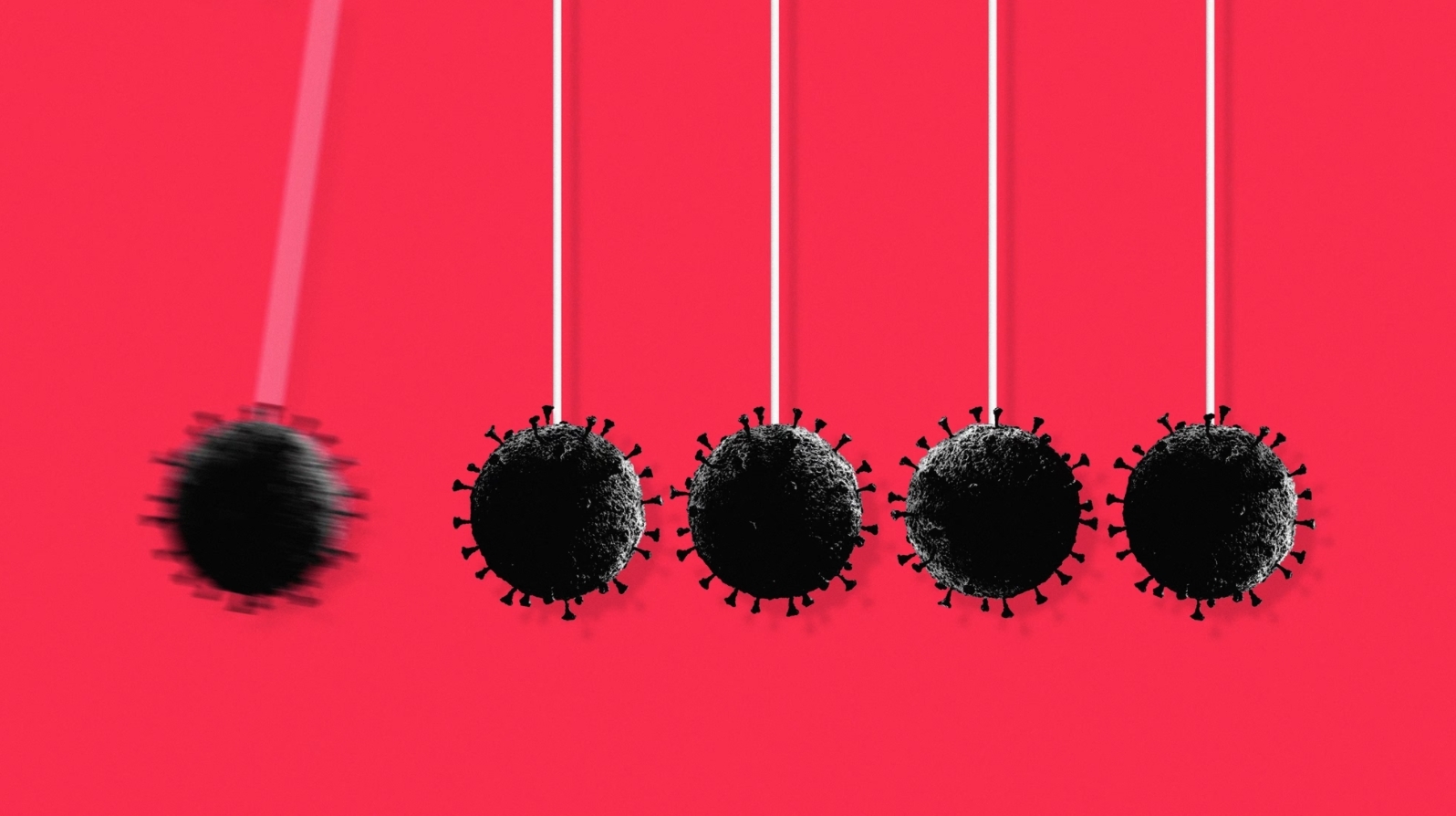
In the 1980s, doctors at an English hospital deliberately tried to infect 15 volunteers with a coronavirus. COVID-19 did not yet exist—what interested those doctors was a coronavirus in the same family called 229E, which causes the common cold. 229E is both ubiquitous and obscure. Most of us have had it, probably first as children, but the resulting colds were so mild as to be unremarkable. And indeed, of the 15 adult volunteers who got 229E misted up their nose, only 10 became infected, and of those, only eight actually developed cold symptoms. The following year, the doctors repeated their experiment. They tracked down all but one of the original volunteers and sprayed 229E up their nose again. Six of the previously infected became reinfected, but the second time, none developed symptoms. From this, the doctors surmised that immunity against coronavirus infection wanes quickly and reinfections are common. But subsequent infections are milder—even asymptomatic. Not only have most of us likely been infected with 229E before, but we’ve probably been infected more than once.
This tiny study made little impression at the time. In the ’80s and ’90s, coronaviruses still belonged to the backwater of viral research, because the colds they caused seemed trivial in the grand scheme of human health. Then, in the spring of 2020, scientists urgently searching for clues to immunity against a novel coronavirus rediscovered this decades-old research. Before the emergence of SARS-CoV-2, which causes COVID-19, only four known coronaviruses were circulating among humans, including 229E. All four of these coronaviruses cause common colds, and in the most optimistic scenario, experts have told me, our newest coronavirus will end up as the fifth. In that case, COVID-19 might look a lot like a cold from 229E—recurrent but largely unremarkable. That future may be hard to imagine with intensive-care units filling up yet again during this Delta surge. But the pandemic will end. One way or another, it will end. The current spikes in cases and deaths are the result of a novel coronavirus meeting naïve immune systems. When enough people have gained some immunity through either vaccination or infection—preferably vaccination—the coronavirus will transition to what epidemiologists call “endemic.” It won’t be eliminated, but it won’t upend our lives anymore.
With that blanket of initial immunity laid down, there will be fewer hospitalizations and fewer deaths from COVID-19. Boosters can periodically re-up immunity too. Cases may continue to rise and fall in this scenario, perhaps seasonally, but the worst outcomes will be avoided. We don’t know exactly how the four common-cold coronaviruses first came to infect humans, but some have speculated that at least one also began with a pandemic. If immunity to the new coronavirus wanes like it does with these others, then it will keep causing reinfections and breakthrough infections, more and more of them over time, but still mild enough. We’ll have to adjust our thinking about COVID-19 too. The coronavirus is not something we can avoid forever; we have to prepare for the possibility that we will all get exposed one way or another. “This is something we’re going to have to live with,” says Richard Webby, an infectious-disease researcher at St. Jude. “And so long as it’s not impacting health care as a whole, then I think we can.” The coronavirus will no longer be novel—to our immune systems or our society.
Endemicity as the COVID-19 endgame seems quite clear, but how we get there is less so. In part, that is because the path depends on us. As my colleague Ed Yong has written, the eventuality of endemic COVID-19 does not mean we should drop all precautions. The more we can flatten the curve now, the less hospitals will become overwhelmed and the more time we buy to vaccinate the unvaccinated, including children. Letting the virus rip through unvaccinated people may get us to endemicity quickest, but it will also kill the most people along the way. The path to endemic COVID-19 will also depend on how much the virus itself continues to mutate. Delta has already derailed summer reopening plans in the U.S. And with so much of the world still vulnerable to infection, the virus has many, many opportunities to luck into new variants that may yet enhance its ability to spread and reinfect. The good news is this virus is unlikely to evolve so much that it sets our immunity back to zero. “Our immune responses are so complex, it’s basically impossible for a virus to escape them all,” says Sarah Cobey, an evolutionary biologist at the University of Chicago. For example, levels of antibodies that quickly neutralize SARS-CoV-2 do indeed drop over time, as happens against most pathogens, but reserves of B cells and T cells that also recognize the virus lie in wait. This means that immunity against infection may wane first, but the protection against severe illness and death are much more durable.
snip
When Mike Pompeo was in Doha meeting with the Taliban (without the Afghan Government), Emily Murphy
was still refusing to ascertain Biden as the President-Elect, blocking him from any insight into what they were doing. Murphy was finally forced to recognize Biden as President-Elect on Nov 23.But the Trump administration - including Kash Patel and Christoper Miller - continued to block his access to Pentagon resources through the end of the year.
https://twitter.com/clearing_fog/status/1427762661605838849
Comedian Sean Lock dies aged 58
Bill Bailey, Lee Mack, Harry Hill and Diane Morgan are among the fellow comics who have paid tribute to Lock, ‘an absolute genius’, who died at home from cancer, surrounded by familyhttps://www.theguardian.com/stage/2021/aug/18/comedian-sean-lock-dies-aged-58
Tributes have been paid to the comedian Sean Lock, who has died of cancer at the age of 58.

Bill Bailey told the Guardian that Lock was as “brilliantly funny” off the stage as on, and that their daft conversations would leave him “helpless with laughter”. Bailey described him as a kind and generous man who was rigorous in his approach to writing comedy. In a writers’ room, said Bailey, Lock “spurred you on to find a better joke, a new line, the sweet spot of a perfect gag”. When the results worked, Lock would let out a “great gale of laughter”, Bailey recalled.
Celebrated for his carefully crafted surreal content and imaginative observational wit, Lock was nominated for the Perrier comedy award at the Edinburgh fringe in 2000 for his show No Flatley, I am the Lord of the Dance. He achieved television success with a long run as a team captain on Jimmy Carr’s Channel 4 comedy panel show 8 Out of 10 Cats and the spin-off, 8 Out of 10 Cats Does Countdown, and also wrote and starred in the popular BBC sitcom 15 Storeys High. The often deadpan absurdist, whose timing was described by one writer as “second only to the Greenwich Meridian”, toured extensively around the UK. His stage shows included Lockipedia, also released on DVD, in which he improvised on a number of topics suggested by his audiences: in what he described as a game of “audience battleships” he would call out a seat number and ask its occupant to give him a subject to riff on.
His agent, Off the Kerb Productions, said Lock died at home surrounded by his family: “Sean was one of Britain’s finest comedians, his boundless creativity, lightning wit and the absurdist brilliance of his work marked him out as a unique voice in British comedy. Sean was also a cherished husband and father to three children. Sean will be sorely missed by all that knew him.”
snip
A Tribute To Sean Lock
Profile Information
Gender: FemaleHometown: London
Home country: US/UK/Sweden
Current location: Stockholm, Sweden
Member since: Sun Jul 1, 2018, 07:25 PM
Number of posts: 43,360